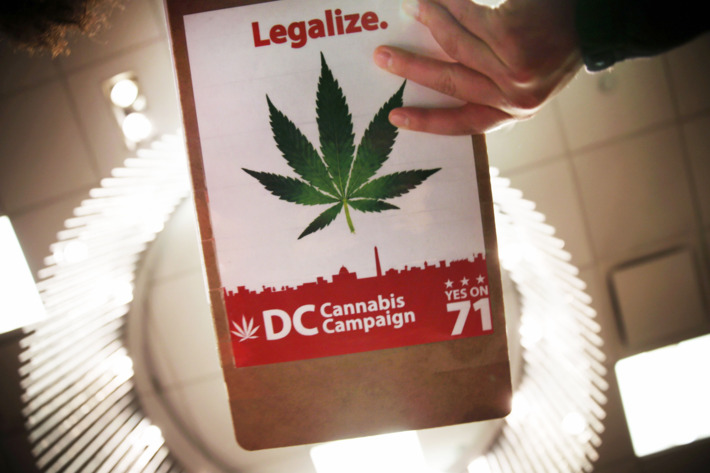
Law of the Land
On November 4th 2014, voters in Washington DC passed ballot Initiative 71 which legalized and permitted the use of up to two ounces of marijuana and the possession and cultivation of up to three marijuana plants. This story was met with jubilation and excitement from people all over. The people in the Capitol stood up for liberty and choice when they successfully passed the initiative. However, the institution of cannabis became murky rather quickly.
Initiative 71
This initiative made it lawful under District of Columbia law for a person 21 years of age or older to:
“Possess up to two ounces of marijuana for personal use;
Grow no more than six cannabis plants with 3 or fewer being mature, flowering plants, within the person’s principal residence;
Transfer without payment (but not sell) up to one ounce of marijuana to another person 21 years of age or older; and
Use or sell drug paraphernalia for the use, growing, or processing of marijuana or cannabis.”
The initiative called for the city council to design an ordinance establishing regulations on marijuana retail sales and enforcement of such regulations. However, election law for the District of Columbia does not allow a citizen initiative to mandate the expenditure of city funds. This little piece of legislature prevented Initiative 71 from addressing the regulation and legalization of marijuana sales, since a regulatory system would require substantial city expenditure. Thusly, Initiative 71 simply legalized possession and personal cultivation.
Although almost 65 percent of voters approved legalizing small amounts of marijuana in the nation’s capital, the fate of the measure ultimately rested with the national legislative body in which D.C. voters had no voting representatives. City and federal laws gave Congress a 30-day window to review the city’s measure and either reject it or let it stand. Congress also had the power to restrict Initiative 71 through its control over the city’s budget.
Congress did not act to strike down the initiative and the law went into effect on February 26, 2015. Even today, since the city has not been given approval in the budget, there has been no action towards creating a plan to regulate retail sales.

So what does this mean for the DC visitor?
Following the approval of Initiative 71, Rep. Andy Harris (R-Md.) introduced a provision to the bill that prohibited officials in D.C. from funding systems for taxation or regulation of marijuana sales in the city. Seems like a smart guy right? DC could have a booming industry, giving people the right choose at the same time providing new opportunities for the local community. However DC advocates did not let this stop them and they got creative.
They took advantage of a legal loophole. If you won’t allow the sale and taxation of cannabis, how can you trade legally?
Soon after D.C. businesses started selling items (T-shirts etc) unrelated to cannabis at marked-up prices and subsequently provide cannabis as a stated bonus or gift alongside the transaction. Commonly referred to as a gift economy, the culture of supplying recreational marijuana through indirect sales is advertised openly in the city and includes daily transactions, local deliveries, and special events.
More recently, it’s become known as buying the sticker. Why spend more money on expensive items, just to trade your cannabis? Why not trade “cards” or “stickers.” If you find something you like, you pay for the sticker price. I was happy to find one vendor with Garbage Pail Kids from the 80s, I was so stoked, honestly got a little distracted for a moment from my original intention.
Social clubs are technically not legal in DC, which is terrible for people looking to have a safe place to consume. But again, the DC advocates didn’t let this stop them from meeting the needs of the consumer.
Instead of social clubs, they host events. This way you can provide a safe environment, but you are not a “social club” in the idea that they are not static brick and mortar locations. Events move around the city. People promote via word of mouth and through social media. Police tend to pass over these events as long as the events do not cause issues or complaints. This doesn’t mean that all events will be free from raids, however. They do happen. Stings have been known to occur, if vendors are found not to be in compliance with Initiative 71. Remember, you can only possess a finite amount.
So what are people doing… they are policing their own. There are restrictions keeping the industry in more of a grey market, but they are not illegal. When heading to DC, try to find an event. You will not be disappointed. You will more than likely have a great time with a reputable host. Remember, you will not be arrested if you are not found breaking the law. If you see anything that doesn’t seem right, play it safe. Be responsible. We are all adults.
Check out Dabbin Dad for all your strain information. Know your medicine.


